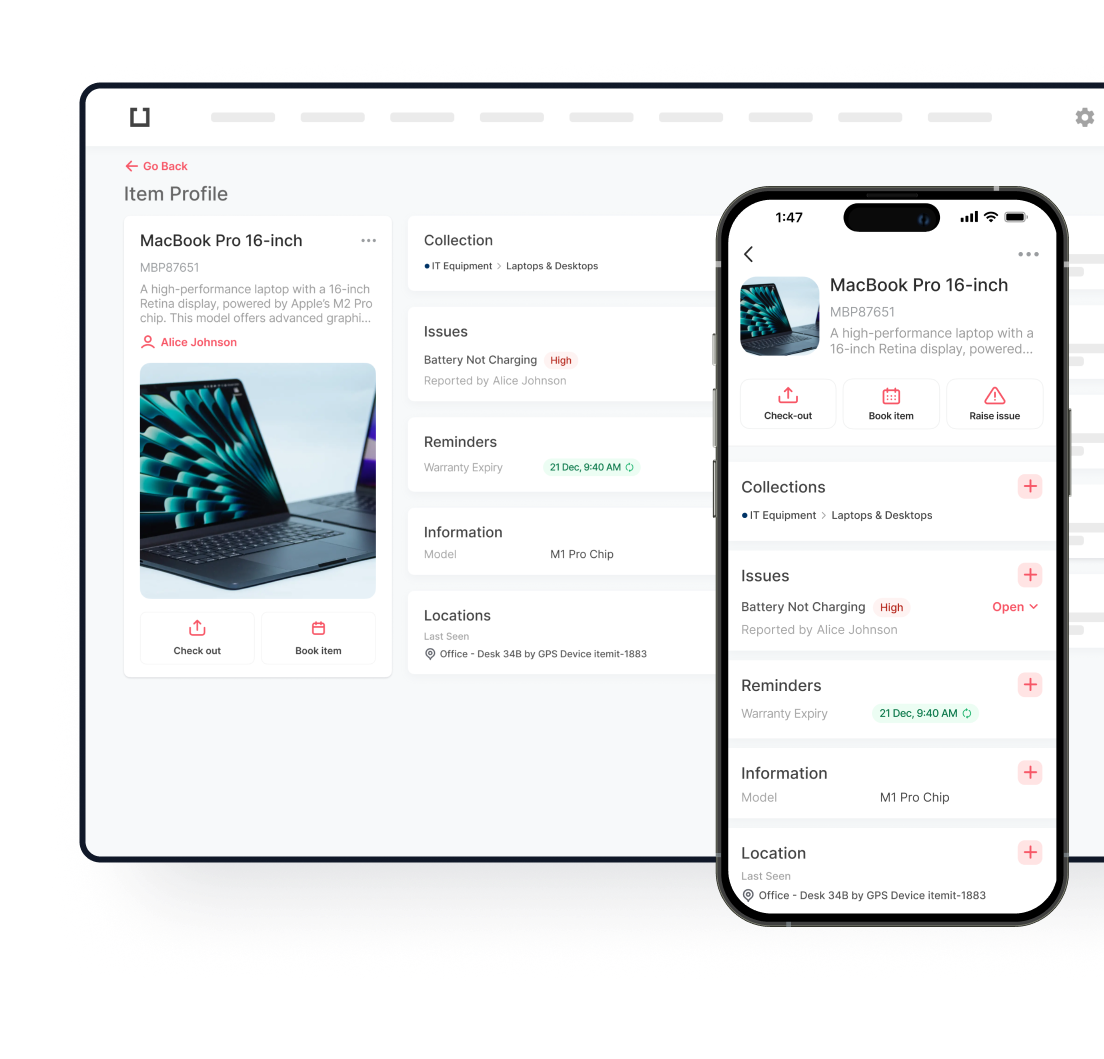As you can tailor asset tracking software to your industry and use case, if you’re in the construction industry, you can benefit from a suite of features including equipment booking capabilities and location tracking.
Overall, construction equipment tracking software helps save you time and money by improving your operations.
Which Industries Can Use Asset Tracking Software?
In other words, if a company wishes to track their office’s assets, they can use the system as an IT asset management software and as a fixed asset register software.
Why is this relevant to construction? As the construction industry has one of the biggest overlaps in terms of asset tracking needs. Construction companies will have equipment, tools, IT assets and fixed assets, and all must be tracked effectively.
This is why it’s helpful to note that asset tracking software can be used in any industry, as the ways many industries use the software are applicable to a construction equipment tracking use case.
Using Asset Tags To Track Tools And Equipment
Every time you scan an asset’s tag, the asset’s last seen location updates, the user who scanned the tag is logged and a timestamp is created. This gives you a full audit trail of your asset interactions.
Getting A Return On Investment From Asset Tracking Software
An accurate asset register also minimises the chance of duplicate purchases or other common mistakes. Then, the improved audit trail you get from tracking your assets means that you’re less likely to lose them.
Then, there are the other benefits you get from the speed you can track assets with. In other words, asset tracking software gives you free time as you save time doing critical operations.
This time can be spent on other things, now, and doesn’t need to be dedicated towards double, triple, and quadruple checking an asset register.
Further Asset Tracking Capabilities
You can use many helpful features to automate asset location tracking and to log wherever your assets are on or off site. Then, you can run speedy audits on your assets thanks to dedicated tagging features.
Maintenance is simplified through an effective reminders system and the ability to log reactive issues, notifying your team at any moment if a problem needs to be addressed.
Then, you can track who has what further by using an effective equipment checkout system. This system allows you to monitor, log, and indicate who has which asset and when they’re unavailable.
itemit gives you all of these features and more. With itemit, you save time and money on your construction equipment tracking, which is why it’s used by construction firms across the world.
To find out more about how itemit can help you, you can contact the team at team@itemit.com or fill in the form below to start your very own 14-day free trial – no strings attached!

Try itemit
Choose a better way to track your assets. Start your free 14-day trial now!

Keep Learning
itemit Blog
Tips, guides, industry best practices, and news.
How To Track All of Your Construction Tools with Ease
Having difficulty tracking your constructions tools? Read this article now to find out how equipment tracking software can make tracking much easier!
The Use Of Artificial Intelligence And Equipment Tracking Systems
Can using artificial intelligence alongside your current equipment tracking system make a difference to your business? Read this article to find out!
Hospital Equipment Tracking Made Easy
Find it hard to track hospital equipment? Learn how using equipment tracking software can make tracking everything so much easier!


